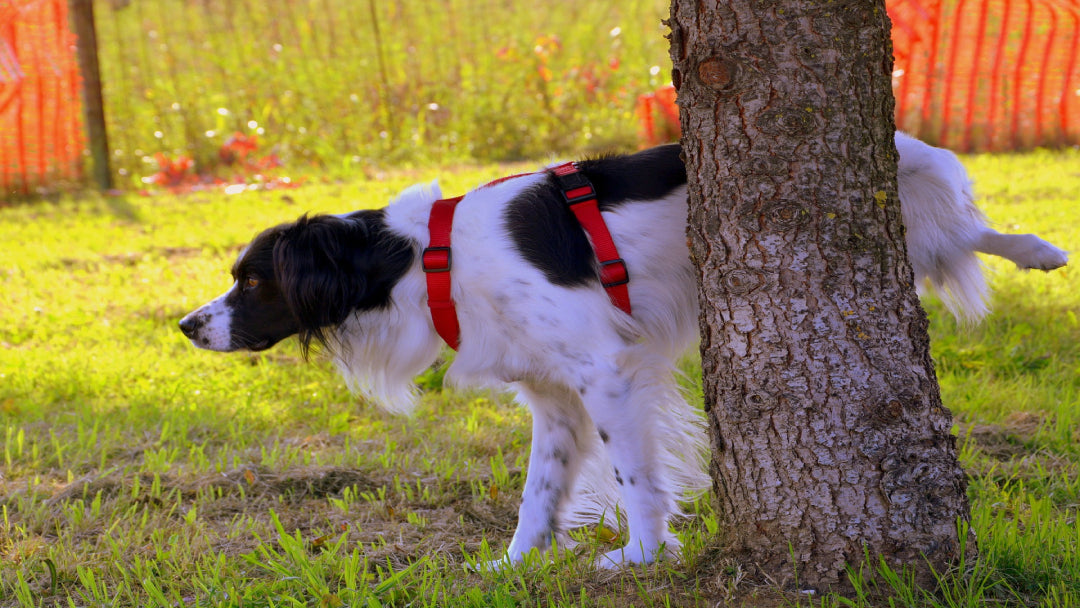Did you know that your dog can get bladder stones? Unfortunately, they can. We'll discuss here what they are, what causes them, how to treat them, and everything else you need to know.
Related: My Pet is Having Trouble Peeing, What Do I Do?
What are Bladder Stones in Dogs
Bladder stones, also called uroliths or cystic calculi, are stone-like formations of minerals that can grow in your dog's urinary bladder. They may have a group of stones or just one large one that may be as small as grains of sand or gravel. If your dog has more than one stone, they can be a variety of sizes.
These stones can cause your dog to have recurring urinary tract infections, an obstructed urinary tract, and experience pain. Despite these awful effects, signs of bladder stones may not be so obvious, leading you to wonder what's up with your dog.
Other Stones Your Dog Could Develop
We're talking about bladder stones, but just to add that they can also develop other kinds of stones.
- Kidney stones are mineralized structures that develop in their kidneys.
- Gallstones containing bile salts can develop in your dog's gall bladder.
Kidney and gall stones are not related to bladder stones. Like bladder stones, these are a sign of inflammation in the infected area.

The Signs of Bladder Stones
As already stated, the signs of bladder stones aren't obvious. But here are some signs that almost any dog with developing bladder stones will have:
- Inability to urinate (even though they try often)
- Urinary accidents
- Discolored or cloudy urine
- Straining during urination
- Licking around the area of urination
- Blood in urine
- Sensitive or bloated stomach
- Low energy
- Not wanting to move about
- Vomiting
- Abdominal pain
Unfortunately, these signs aren't conclusive because other urinary tract-related conditions can also present with these symptoms. Your vet will have to do an ultrasound or x-ray to be sure.
Also, your dog may not show the above signs because the stones are still tiny. Sometimes they can pass the stones (pee them out) if they're small enough. This is especially true of female dogs because they have shorter, wider urethra than male dogs. But once stones become larger, they become a big problem for both sexes.
Large stones that form an obstruction in the urinary tract are a life-threatening condition for dogs - especially male dogs.
Related: My Pet has Constipation? HELP!
Are you looking for high-quality products to keep your pet happy and healthy? Visit Healthy Paws Herbal Labs to see our line of wellness products.
What Causes Bladder Stones
Bladder stones occur when there's an oversaturation of minerals in your dog's bladder. Underlying health conditions can cause this to happen. Their acidic urine can also help to form stones, especially if your dog has a bacterial infection or a less-than-nutritious diet. Minerals become crystals, then stones.
It can take weeks or months for stones to develop. The speed depends on the number of crystalline minerals in your dog's system and the degree of infection. While it may take months for stones to become large, smaller stones have been known to develop in just two weeks.
Stone Composition
The actual composition of the stones may vary. Here are the most common types:
- Calcium Oxalate. This is mainly found in male dogs (73%) and 5 to 12 years old.
- Struvite. These are primarily found in female dogs (85%) and dogs 2 to 4 years old.
- Cystine and Ammonium Urate. These stones are usually found in breeds like English Bulldogs and Dalmatians.
How Bladder Stones Are Diagnosed in Dogs
If your dog demonstrates any of the above-mentioned symptoms or behaviors, you should get them to the vet. Bladder stones may be diagnosed in a few ways:
- Felt by pressing gently on your dog's stomach
- A rectal exam
- Urinary catheter
But the most common ways to diagnose bladder stones are ultrasound, x-ray, and sometimes, a urinalysis. If just one stone is found, there should be a thorough examination of your dog's entire urinary tract.

Treatment of Bladder Stones
There are three usual ways to treat bladder stones, depending on the type of stones found:
- Surgical solution
- Non-surgical solutions
- Dietary
Surgical
This is the fastest way to remove stones from your dog, but it can also be risky. The stones are accessed by a cystotomy, with the bladder cut open. If your dog has other health conditions, this may not be the best option. But if your dog has an obstructed urethra, it is the quickest way to save their life.
Non-Surgical (Uro hydro propulsion)
If the stones are still small, they may be flushed out with a special catheter. This technique is called Uro hydro propulsion and may be performed under sedation or general anesthesia.
Dietary
Sometimes, bladder stones can be dissolved by a special diet. Your vet will determine precisely what type of stone your dog has and what foods will work best to eliminate them. This is a gentler option that avoids surgery. However, you should note that diet doesn't work on all types of stones, it takes a long time, and your dog may not want to eat the food. And, of course, if your dog won't eat the restricted foods, the diet won't work, and the stones will grow and become more dangerous.
Does your pet need bladder and kidney support? Our Pee Pee Issues formula may help address several health conditions in your pet's genitourinary tract, including bacterial infections, inflammation, bladder or kidney stones, and bleeding. Visit Healthy Paws Herbal Labs to learn more.
Ways to Prevent Bladder Stones in Dogs
Ideally, you want to prevent this condition from reoccurring (or happening in the first place). Once your dog's stones are gone, a prescription urinary diet can prevent them from returning. You can also ensure your dog gets plenty of water to drink. Stones aren't easily formed in diluted urine.
Related: Do You Know the Number One Reason Pet Owners Seek Help? DIARRHEA!



